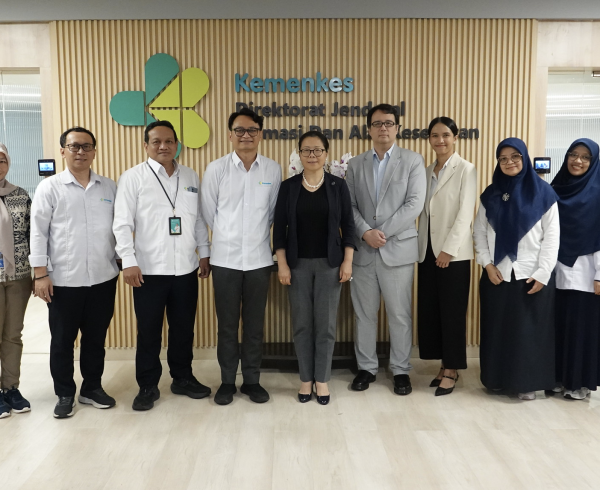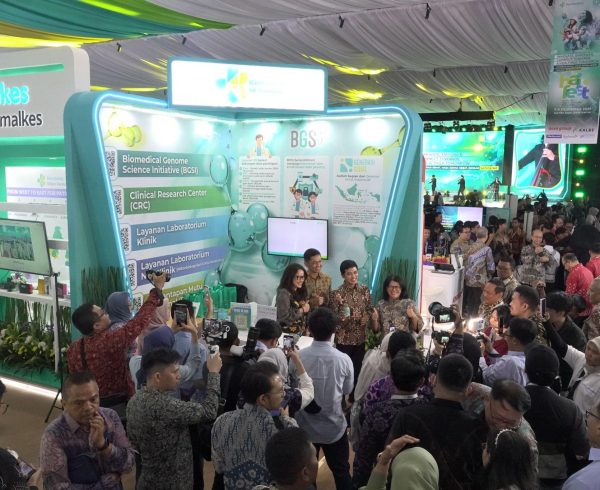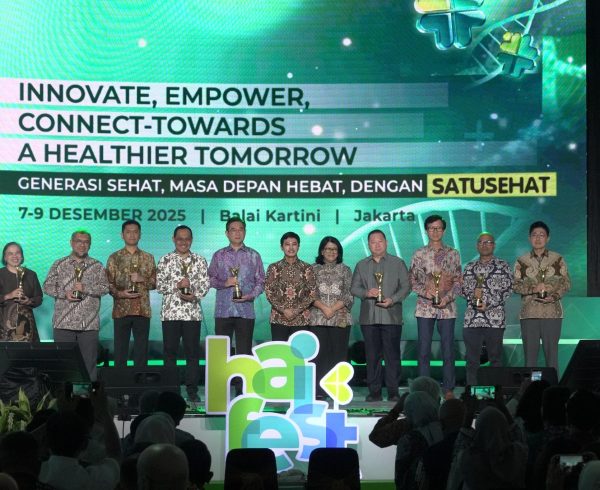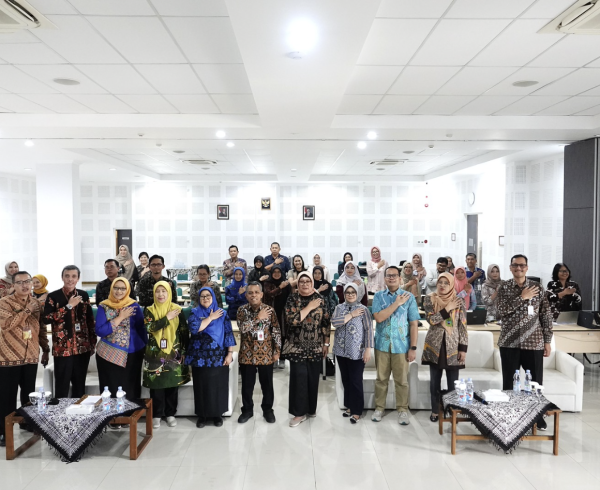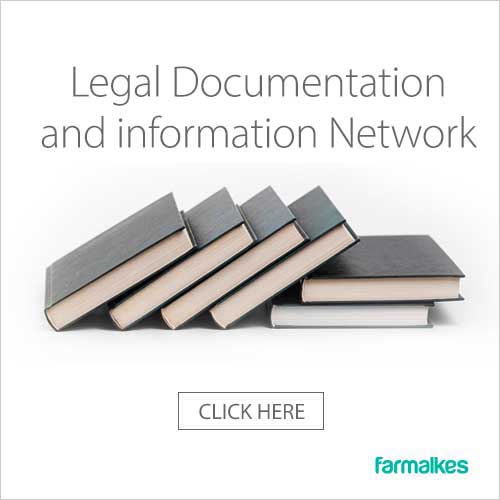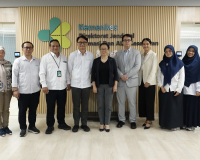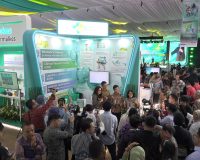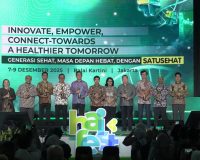Jakarta, 6 September 2024
The Directorate General of Pharmaceuticals and Medical Devices, Ministry of Health held a public hearing to discuss the Draft Minister of Health Regulation (RPMK) related to Health Supplies.
This activity aims to accommodate public participation by collecting responses and input from stakeholders, especially those directly affected and who have an interest in the preparation of this regulation.
In the spirit of Meaningful Participation, the Ministry of Health invites all elements of society to participate in this process. The public has three important rights that must be accommodated in the formation of laws and regulations, namely: the right to be heard; the right to have their opinions considered; and the right to receive explanations or answers to their responses.
The meeting, which was held in a hybrid manner on September 6, 2024 in Jakarta, was attended by cross-sector stakeholders from Ministries / Institutions, academics, experts, associations, business people, professional organizations, communities to foundations, all parties contributed to the improvement of this RPMK.
This RPMK on Medical Supplies is part of the follow-up to Government Regulation No. 28 Year 2024, which simplifies regulations related to pharmaceuticals and medical devices through the omnibus law method. This RPMK revokes 40 existing regulations as a simplification effort to improve efficiency and order in regulations. Based on Law No. 17 of 2023 and PP No. 28 of 2024, there are 161 PMK and 71 KMK mandates that need to be formed, according to the direction of the Minister of Health in the process of forming regulations, the formation of this RPMK will simplify regulations into 14 RPMK, and 66 RKMK and one of them is the RPMK on Health Supplies.

In her remarks, Director General of Pharmaceuticals and Medical Devices L. Rizka Andalucia highlighted the importance of strengthening the pharmaceutical supply chain system in Indonesia. Although Indonesia has a large capacity in generic drug production, access to innovative drugs is still limited. 90% of drug raw materials are still imported, and only 18% of innovative drugs are available in Indonesia, lower than the 38% in G20 countries. Rizka emphasized “the need for cross-sector intervention and cooperation to accelerate the independence of the national pharmaceutical industry”.
Rizka further said, “Drug vacancies still occur because there is no synchronization between production and distribution, so the supply and demand approach is important” said Rizka.
In addition, Rizka also highlighted the challenges in drug production and distribution that are still not synchronized. A supply-and-demand based approach is essential to overcome the frequent drug vacancies.
This RPMK on Health Supplies covers aspects of planning, production, supply, circulation, and control of health supplies. This regulation also regulates recording and reporting through the Health Information System which is integrated with the National Health Information System, as well as guidance and supervision to ensure the availability of safe, quality, and affordable health supplies.
Through this activity, the Ministry of Health hopes to create policies that favor the national interest, and reflect public aspirations, so as to strengthen the national health system, and ensure wider access to safe, quality and affordable medical supplies for all levels of society.
The Ministry of Health invites active participation from the public to provide input during the RPMK drafting process through the following website https://partisipasisehat.kemkes.go.id/ .
Let's together shape an inclusive and sustainable health policy for a healthier Indonesia!



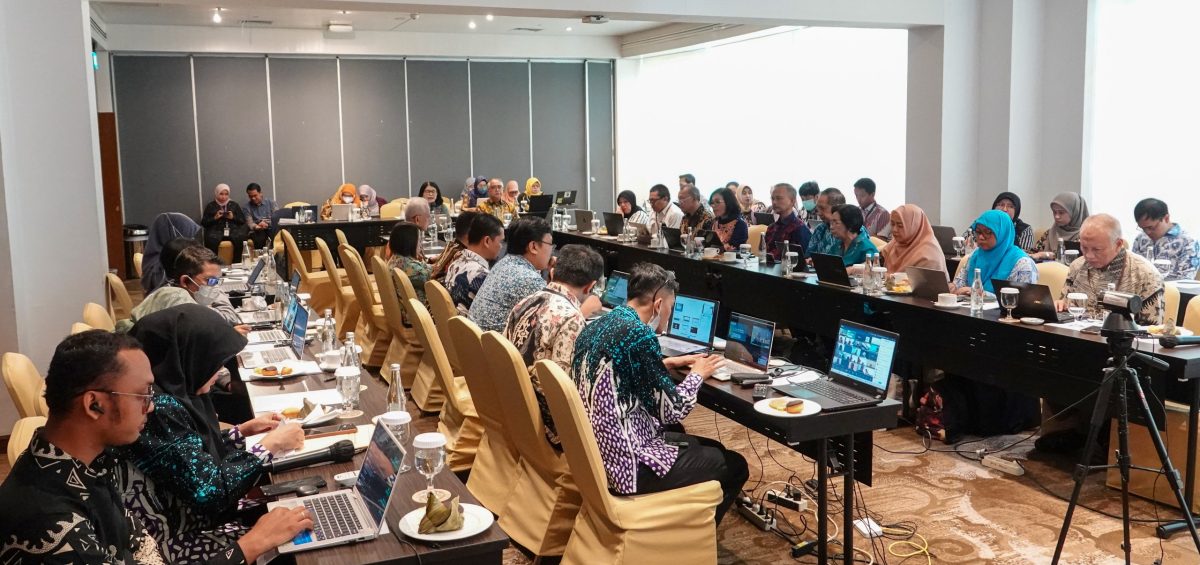 Public Hearing to discuss the Draft Minister of Health Regulation (RPMK) related to Health Supplies in Jakarta on September 6, 2024
Public Hearing to discuss the Draft Minister of Health Regulation (RPMK) related to Health Supplies in Jakarta on September 6, 2024